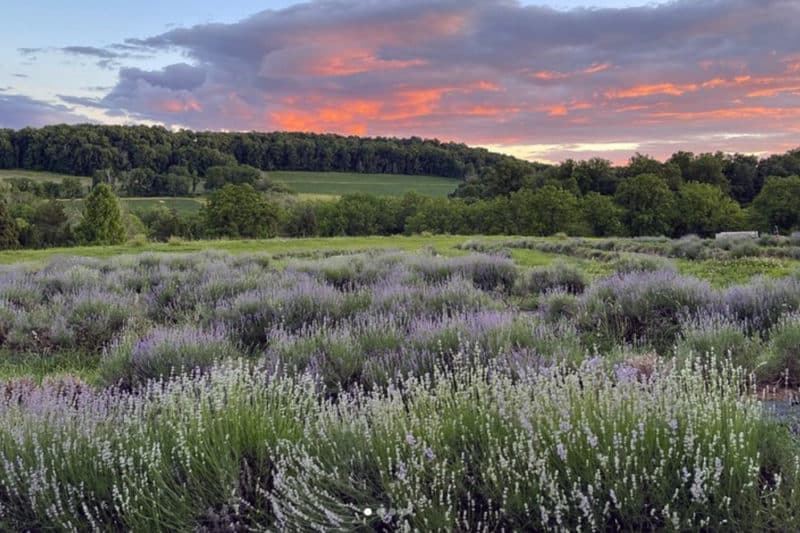Chester County, Pennsylvania, is well known for its lush farms and old-world charms. But with roots in Montclair, a family finds wondrous new beginnings in a scene fit for the turn of the century. Now run and curated by the Rosens, this farm not only has gorgeous lavender fields (when in season), but also features handmade lavender bath products and even runs fun events on the gorgeous property. Read on to learn more about the magical Warwick Furnace Farm, located in Chester County, Pennsylvania.
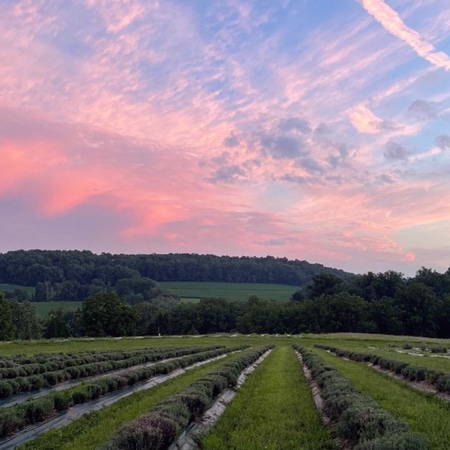
(Photo Credits: Claire Rosen)
The History
The Warwick Furnace that lends its name to this area of Pennsylvania’s Chester County was built in 1737 by Anna Nutt and Co. She was the widow of former ironwork entrepreneur Samuel Nutt and is considered the first female industrialist in the United States. Samuel’s will directed that she and her son build a furnace on 120 acres of land near the south side of French Creek. The furnace was made into a slope so that iron, limestone, flux, and charcoal could be placed from above.
Read More: A Guide to Lavender Fields in NJ
This method utilized gravity as a way to heat metal, which then flowed and separated downward. Charcoal was preferred because it could burn hotter and with less smoke than traditional wood. The construction required timber from 240 acres of forests annually, and a large water wheel on French Creek powered the furnace bellows. The Warwick Furnace produced pig iron and castings for stoves, pots, kettles, and other household items.
As the years went on, Anna’s children inherited the furnace and then improved operations by building a Franklin stove (named after the famous Ben). George Taylor, an indentured servant and signer of the Declaration of Independence, was enlisted as the business’s clerk. Warwick became the center of iron production in Pennsylvania and possibly in all 13 colonies. They sold stoves throughout this time in early America. When uprisings commenced the Revolutionary War, the American patriots of Warwick produced cannons for the Pennsylvania Navy and munitions for Washington’s army. George Washington retreated to this valley after the “Battle of the Clouds” and camped troops at Warwick and nearby Reading Furnace. They buried their remaining cannons here to keep them out of British hands while melting all available metal for musket balls.
After the Civil War, old-style iron stoves grew obsolete. Americans opted for hard coal to heat homes rather than the bulky and heavy stoves. The furnace was shut down in 1867 after nearly 130 years of use. The house and 550 acres were farmed, the same as today.
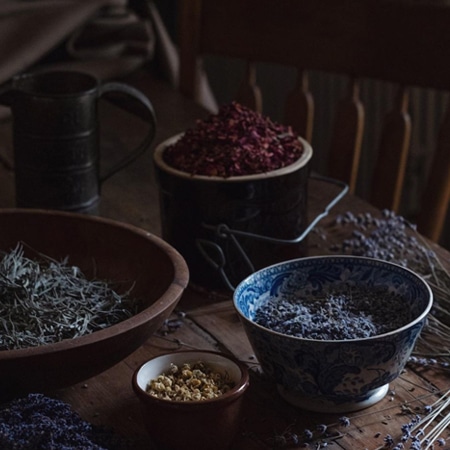
(Photo Credits: Claire Rosen)
The Farm Today
Warwick Furnace Farm is now a family-run lavender farm, run and curated by the Rosens. Having lived in Montclair for decades and contributing significantly to the community through expertise in Culinary and Pastry Arts, Dolly Rosen and her husband, Ed, run the farm.
Dolly is a renowned Food Historian with years of knowledge and an extensive collection of 18th and 19th-century cookbooks. Her amazing daughters, Claire, Lillie, Charlotte, and Camille, all embrace their mother’s love of old-world life, living on the farm and contributing to its beauty and community. The eldest, Claire, is an award-winning photographer. Lillie is a well-traveled educator and activist. Charlotte specializes in Pilates and yoga. While the youngest, Camille, is passionate about plant-based cooking. All help with running the farm — making it indeed a family business.
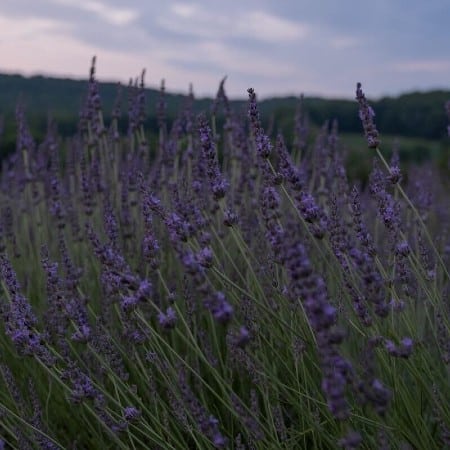
(Photo Credits: Claire Rosen)
See More: Lifecap Farms — A Sustainable Urban Mushroom Farm
The Rosens did extensive restoration when they purchased the farm, starting with the old Dairy Barn, considered a Class 1 Historic Structure. Between the wood frame construction and the stone masonry that makes up the barn, it is believed to be from the 19th century. The woodlands have been tenderly cared for by clearing out invasive, non-native plants to restore them to their original glory. Meanwhile, the house’s formal gardens were restored from weed-ridden beds to a glory of blooming colors. Other restorations are planned for the remaining structures on the property.
With an abundance and variety of lavender plants, the family uses their crop to produce and sell natural, fragrant products. All their lavender is grown in small batches and Certified Naturally Grown. They harvest, distill, and formulate their lavender right on the farm.
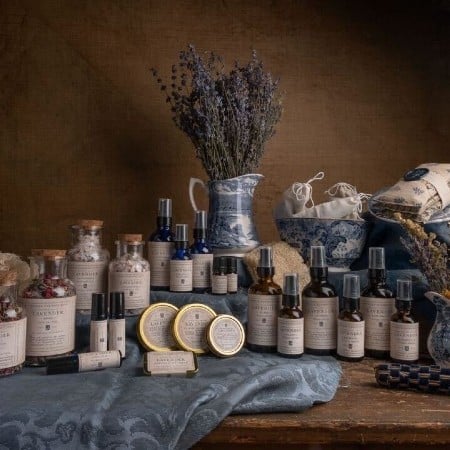
(Photo Credits: Claire Rosen)
Warwick Furnace Farm offers a selection of beautifully packaged lavender goods, such as facial toners, floral waters, and bath soaks. Their handmade products make a lovely gift and support their whimsical, otherworldly farm. You can order products online, visit their farm store (by appointment), or stop by one of the many Farmers Markets around Chester County where they are vendors. Recently, the family exhibited at the Philadelphia Flower Show, a huge annual event for farmers, florists, designers, and the like.
Lavender harvest season is from June to July, and the farm usually offers visits during that time. However, this year, the false early spring took a toll on the plants. Still, Warwick Furnace Farm holds regular events on their stunning property: from yoga to crafts, Bring-Your-Own Picnic events, and Visits for Artists. Once you meet the Rosens, you will be just as enraptured with their lavender products as their way of life. You can follow them on Instagram @warwickfurnacefarm to see more of the farm, the sisters, and where you can find their products.

